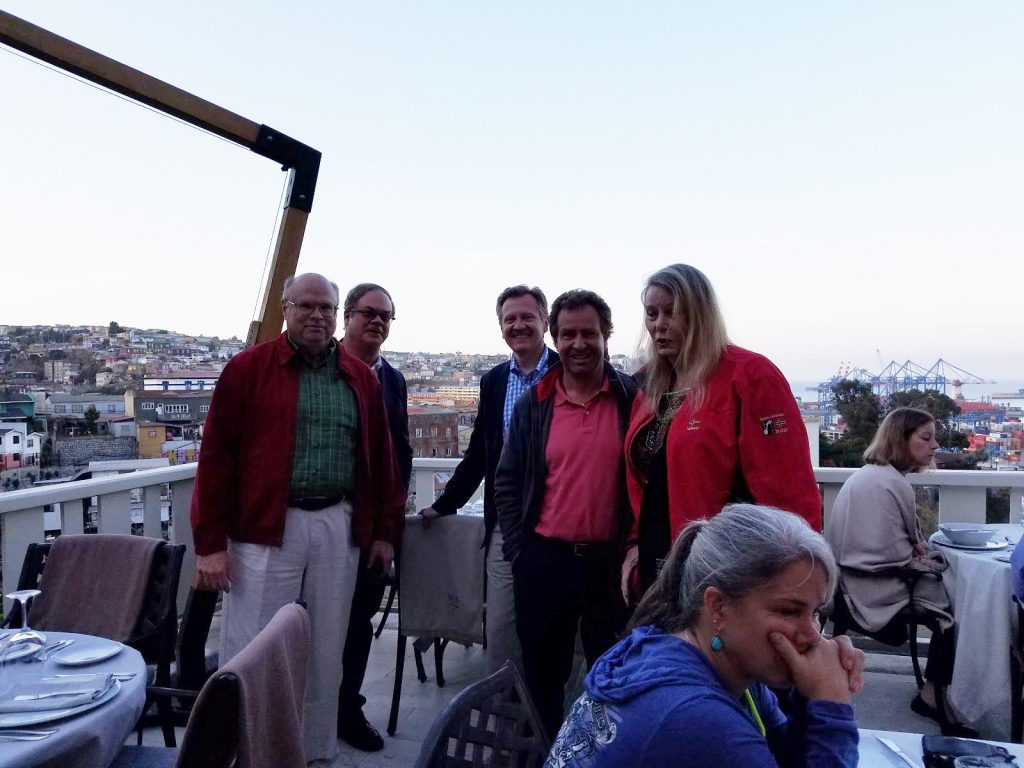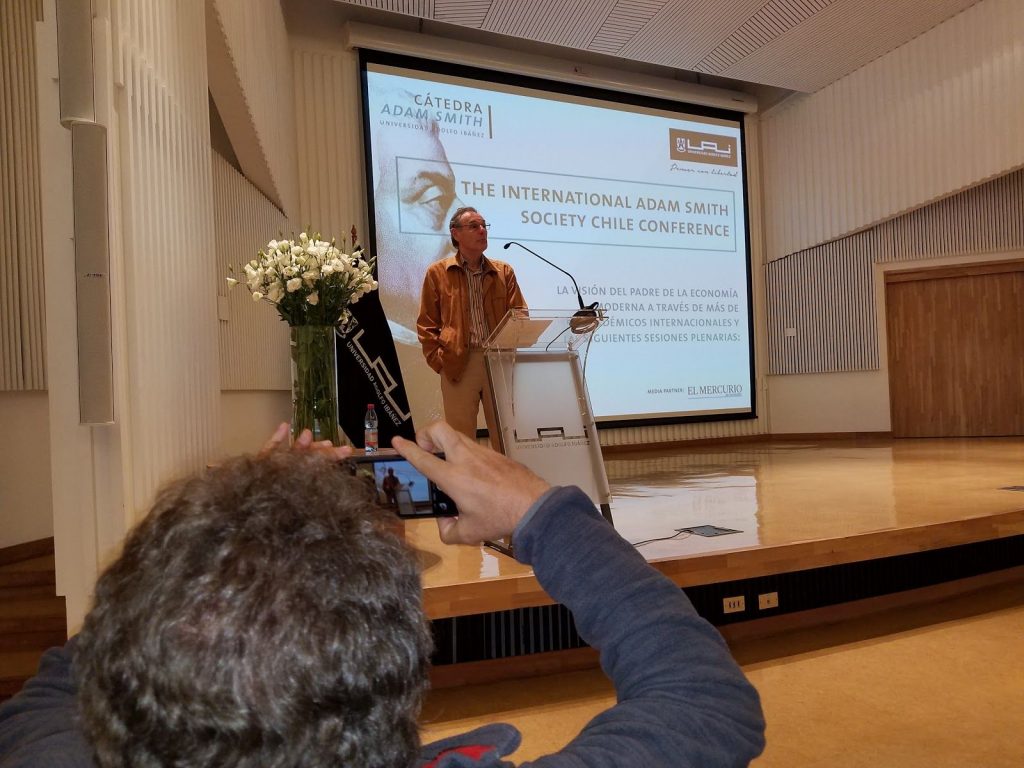Adam Smith defies simple-minded characterizations. And there are still plenty of open problems that stem from his work. These are my two takeaways from a terrific set of papers and plenary talks at the International Adam Smith Society Chile conference in January 2018. I knew this before I arrived in Vina del Mar but the plenary talks and sessions reinforced my conviction and offered a plethora of new insights to mull over.
Perhaps most intriguing was Deirdre McCloskey’s opening keynote. Jepson School alumni may recall when she spoke at the School almost a decade ago. At the time, she discussed economic growth and her experience Crossing; at the 2018 IASS Chile conference Deirdre argued that, in the twentieth century, economists moved from the “cautious optimism” of Adam Smith, preoccupied with how countries become prosperous and flourishing, to a pessimistic view that focused on scarcity and lost sight of growth. I think this is basically correct.

In my own research, I chronicle an odd form of “leadership” that emerged in the mid-twentieth century when experts, or so-called “experts in economics,” claimed an expanded role for their “expertise,” offering up policy advice in myriad forms. While I haven’t worked out the textual or evidentiary details, I think Deirdre’s focus is consistent with mine.
Her point is that during the twentieth century economics truly became the science of scarcity. What might this mean for economists qua leaders, as advisors? Consider how one might advise in the event that the production possibility frontier is floating about, with economic possibilities expanding in new and previously unimagined ways. Hard to figure out the advice, and government officials may not see a need for advice. But in a world of only scarcity, where the production possibility frontier is locked down, experts may step forward to say where on the frontier one should hope to be. In a world of scarcity, there is a greater perceived need for experts. And experts fill the need.
Smith’s world is one in which there is little need for experts. Robbins’s world is one where the need may be greater.
Is the demand for leaders greater in low or zero growth/change situations? Without having collected systematic evidence, I am confident that data would bear this out.
How about characterizing Smith in political or ideological space? Perhaps the best evidence of this is the considerable number of papers that defied a “free market” orientation. As is well known among Smith scholars, the most intriguing work on Smith in the last 30 years has focused on his Theory of Moral Sentiments and points to a much different Smith than the caricature we often see presented in the media. Smith did not defend greed. He was concerned with market transactions in part as a mechanism for growth but also as a moralizing force, the means by which we speak, reciprocate, and exchange praise with each other.

As the philosopher Sam Fleischaker and political theorist Chris Berry argued, for Smith, these considerations are prior to any consideration about the market pure and simple. As such Smith is not the rapacious individualist he is sometimes portrayed to be.
